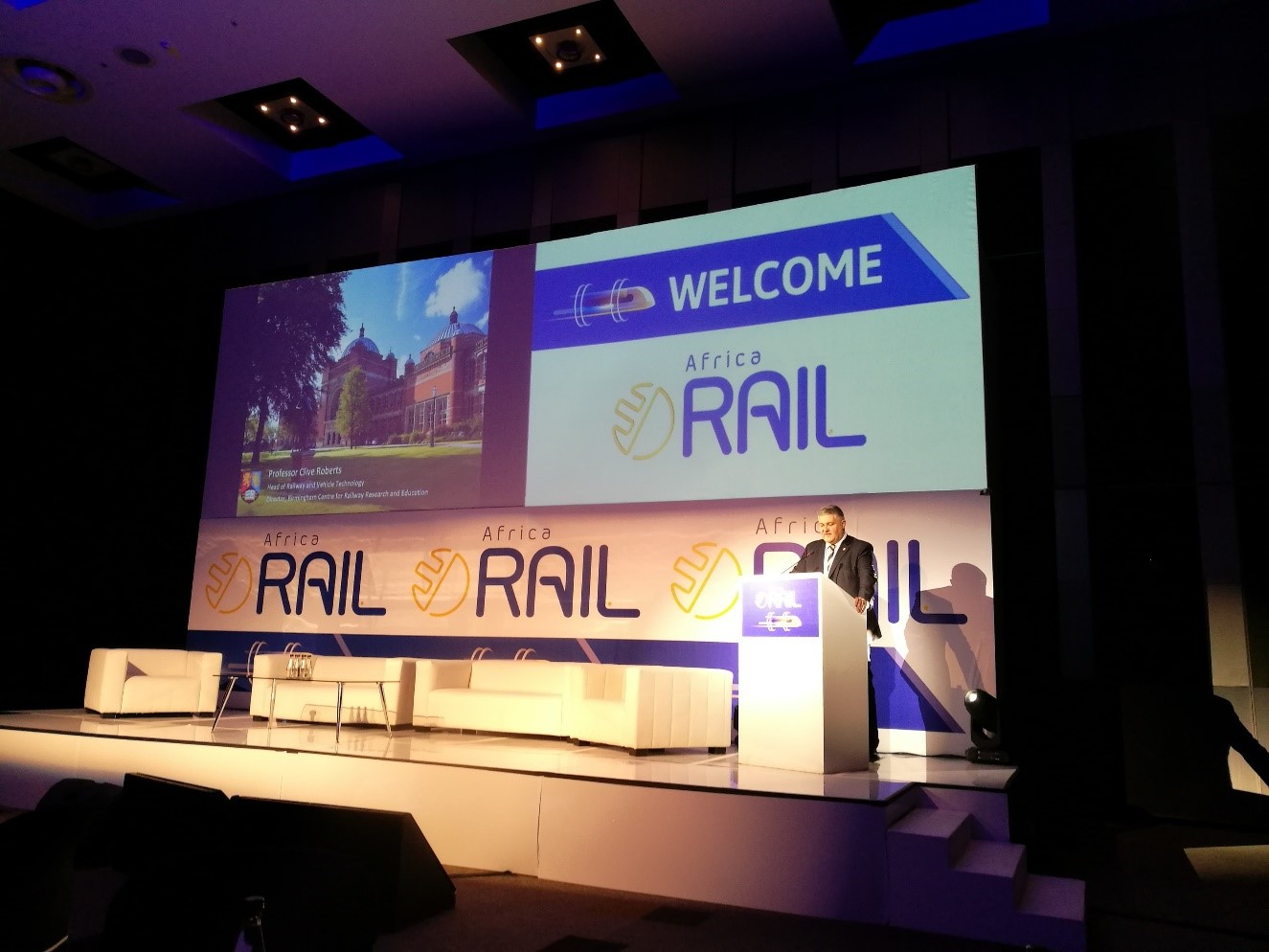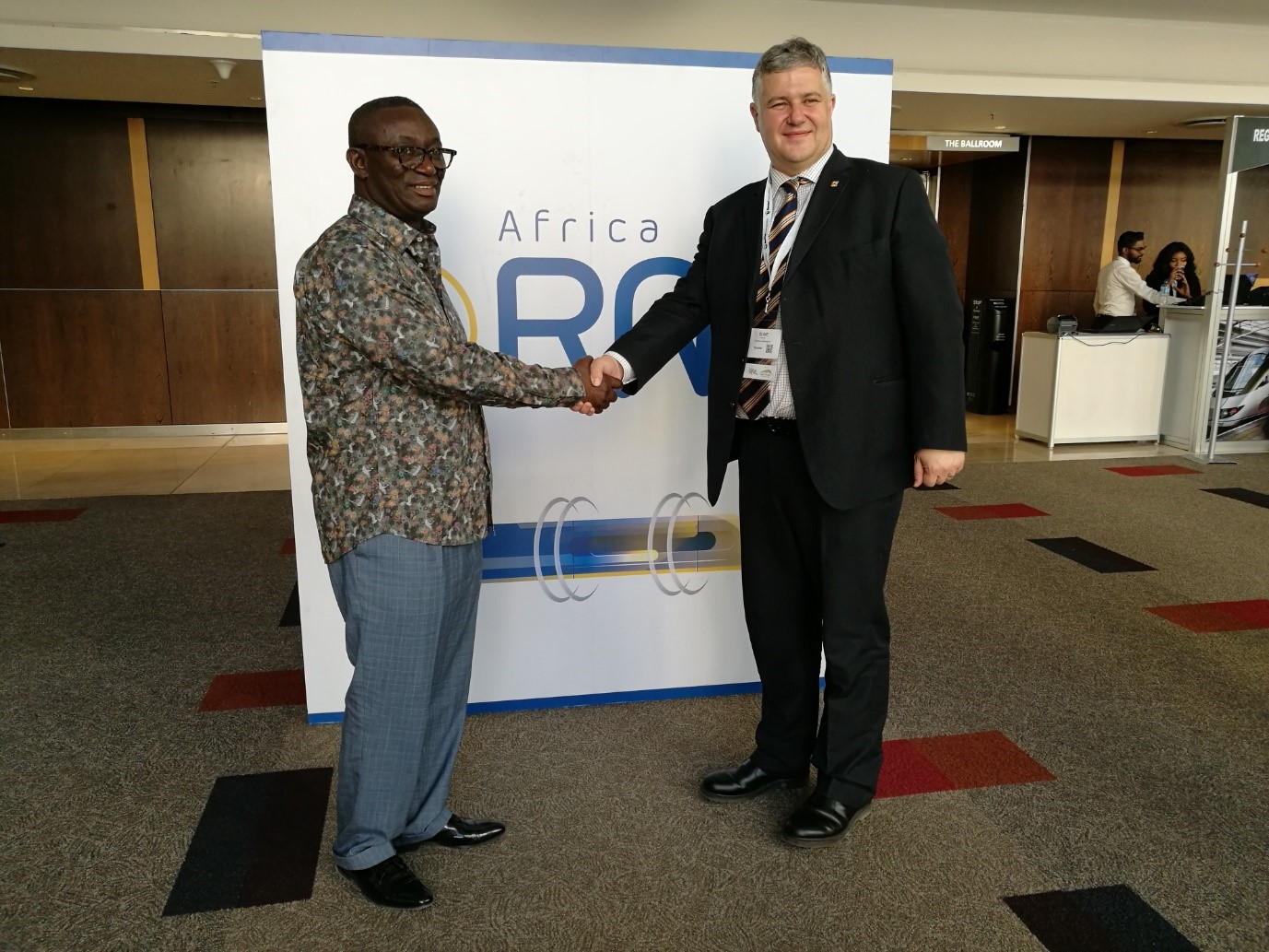Last week, Professor Clive Roberts and Dr Marcelo Blumenfeld attended the Africa Rail conference in Johannesburg, South Africa.
The annual event, and largest of its kind in the continent, was chaired by Professor Roberts and gathered over 6,000 delegates from industry, academia, government, and international organisations. This is a particularly interesting time in Africa as many countries have started to reinvest in the railways, in their pursuit of Sustainable Development Goals.

The continent currently relies on legacy infrastructure that has been poorly maintained for many decades, resulting in severe operational constraints that hinder the competitiveness of rail services against the dominant road transport. However, many countries are prioritising efforts to catch up with global trends, investing in new systems towards standardisation and modernisation of the network. The future goal is clear: the African Union has agreed on an ambitious plan to have a continent-wide network of high-speed trains.
That ambitious vision set the tone of the conference. The conference saw a plethora of presentations highlighting the various large-scale projects under development, especially in Sub-Saharan Africa. Countries like Nigeria, Ghana, Ethiopia, Kenya, and Botswana, have committed billions of dollars in new infrastructure and rolling stock. In addition, the region has also increasing its attention to capacity building and skills development to ensure their sustainable development. In a plenary session with CEOs and directors of operating companies, the main message to take home was the need for upskilling the workforce to increase productivity, efficiency, and cost-effectiveness of future railway planning and operations.

On the second day, Dr Blumenfeld engaged with various delegates in his presentations on the role of systems thinking and innovation to de-risk the uptake of disruptive technologies for greater leaps in performance under limited funding. Marcelo also participated in a discussion on models for financing and investing in African railway networks.
Throughout the event, the team kept themselves busy meeting various ministers, CEOs, and directors from all over the continent. Among them, Professor Clive Roberts formally met with Hon. Minister Andy Appiah-Kubi, deputy minister of railway development of Ghana. The discussion included the hydrogen-powered train developed by BCRRE and the successful academic programmes run internationally by the department.

Overall, the trip to South Africa has proved itself very useful, in which the BCRRE delegates gained valuable insights on the developments taking place in the continent where several economies are advancing at a rapid pace. Using the opportunity to engage with decision makers and private and public organisations from the region, Professor Roberts and Dr Blumenfeld return with confidence in the potential for future partnerships in the region.
Dr Marcelo Blumenfeld, Industrial Fellow for Introducing Innovation.
